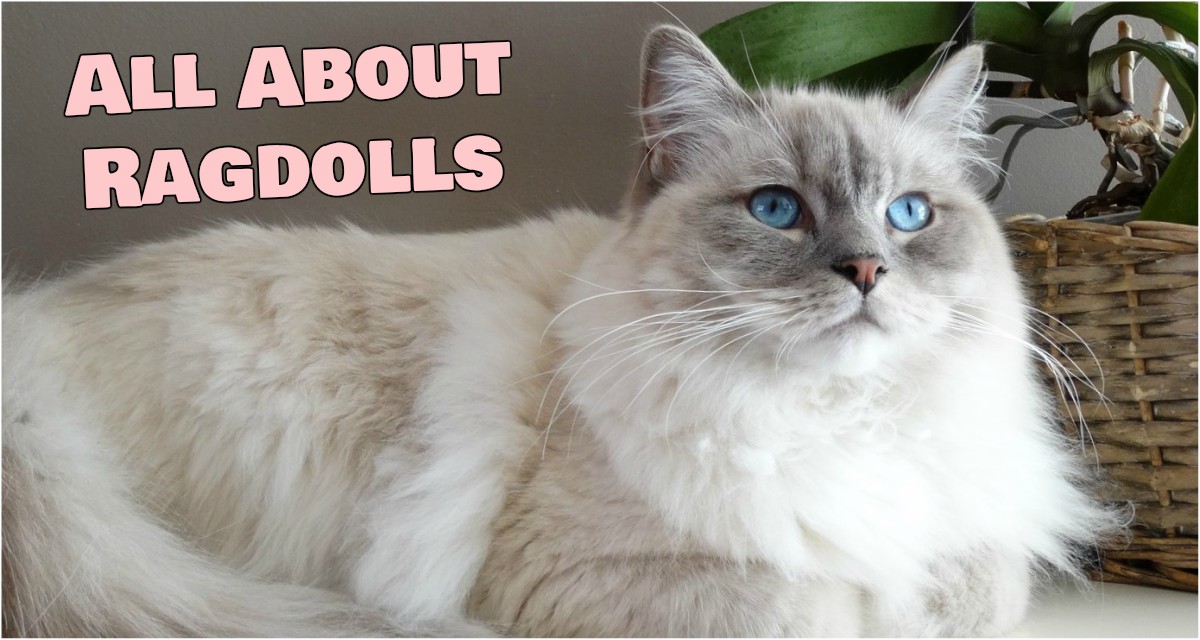Ragdoll Cats: The Most Easygoing Breed in the Feline World?
Find out more about this beautiful, affectionate breed and how they got their name!

Where do they come from?
Ragdoll cats are a fairly new type of feline, developed in the 1960s by a breeder in the USA. Their ancestors include Persian, Birman, and Burmese cats.
Once the breed was established and defined by various cat associations, it became very popular across the US and spread overseas to the UK, where it was also established and declared official.
Its name, one chosen by the original breeder herself, comes from these cats' tendency to simply let themselves go limp when they are picked up, a trait even the very first few litters of this breed exhibited.

What are their prominent features?
Perhaps most notable about the Ragdoll's appearance is their large size (they're one of the largest cat breeds in existence!), their point coloration (reminiscent of that of a Siamese cat), and their striking blue eyes.
They are extremely fluffy, with a plush coat that requires grooming like most long-haired felines. However, they do not shed as excessively as most other breeds who boast such luxuriously furry coats.

What are they like?
Ragdolls are known for being exceptionally gentle and calm, with little to no aversion to being held or picked up, as their name affirms. They rarely ever use their claws, even when they're playing, and they don't show aggression toward humans or even other animals.
Because of their dociliity, as well as their habit of following people around and begging for attention, they are often considered dog-like or puppy-like in nature. Some Ragdolls even enjoy playing fetch and other bonding activities associated with canines.
They are great cats for families, as their affectionate and "chill" personality means they get along well with children, people in general, and other pets. Many wouldn't even bat an eye at being crowned with a tiara or pushed around in a stroller!
So what do you think? Are you considering a Ragdoll as a new addition to your family?
Want more feline facts, humor, and news? Follow us on Facebook!
More steaming articles
 Nobody expected what this tiny...
Nobody expected what this tiny...
 UNBELIEVABLE PICTURES: This is the...
UNBELIEVABLE PICTURES: This is the...
 22 totally EVIL cats who were SHAMED...
22 totally EVIL cats who were SHAMED...


Comment on this article